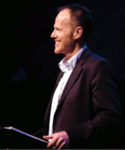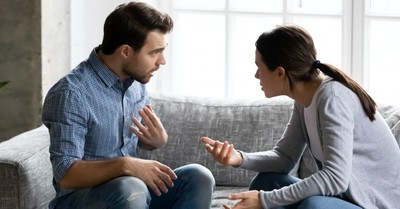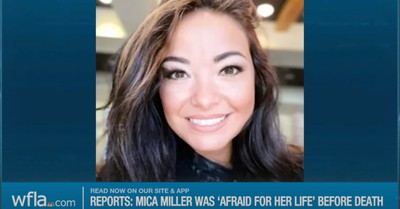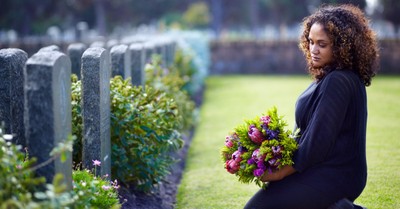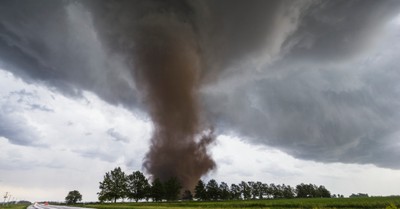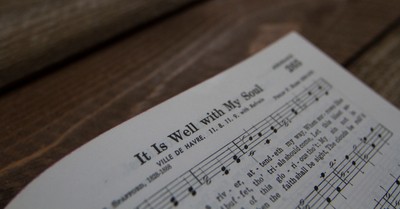When Fear Drives Lives
-
Paul Coughlin Paul Coughlin's Weblog
- Updated Jun 24, 2008
My first book, Secrets, Plots and Hidden Agendas, took on conspiracy theories: why some people believe in them and why some are even willing to die for them. I debated numerous theorists across the country and was interviewed by C-SPAN and the New York Times, among many other media outlets. The conspiracy theorists had read the same news reports I’d read about national and international affairs, but we interpreted them very differently.
My best attempts to talk them down from that ledge of life did hardly any good. The theorists had to believe in their theories, even when I was able to show them how contradictory they themselves were and how blatantly absurd were the alleged conspiracies. Conspiracy theories are a kind of security blanket woven together to help the theorist make sense of the world. Such people were transmitters, not receivers, of information—they couldn’t receive new or objective information because they’d already decided where everything would fit into their already established labyrinth of self-protection.
Remember that conspiracy theories don’t just consume individuals (think of
This is similar to what can happen with parents who over-protect—many of them have so deeply entrenched their worried habits and perspectives into their families that they don’t relate to their kids intuitively. Increasingly frenzied by life’s pace and by their own anxiety, their mental and emotional inclinations begin to rule their children in ways that eventually result in kids simply shutting down. As we’ve already noted, this is happening in younger and younger kids. Children of all ages are becoming less and less able to function, and while we’d like to think it’s because the world has become so dark, or because society has become so generally misguided, it’s usually because the problem is rooted, fostered, and festering at home.
Most overprotective parents don’t use clean intuition; the real problem, frequently, is that they think they’re using it. But true intuition leads to good results. Overarching fear, the driving force of worry, doesn’t even when it’s couched in ways that in the short term appear good and noble to other overprotective parents. When we’re convinced that life is a tragedy waiting to happen, our kids suffer.
I remember when what I called intuition backfired. I’d hired three men to move my hot tub, and when they pulled up and jumped out of their truck, they looked to me as though they may well have just been released from prison. My daughter, uncharacteristically, went to open the door.
My blood roared inside. A primal sap flowed from my gut, throughout my body. My inner-protector (I call him Thor, God of Thunder) drew his sword. I yelled, “Don’t open the door!” She escaped to her room.
I helped them move the tub, a beast of a job involving nearly six hours of difficult labor. I don’t claim to have gotten to know them. I enjoyed working alongside them, and while I made sure they didn’t enter my home, none of them gave me the willies.
What flared up inside me when they arrived wasn’t intuition. It was inclination via stereotypes that threw all kinds of warning bells in my head, and I sounded the alarm loudly in my home. Not at all to say I shouldn’t have had any thought to safeguard my family while they worked on my property. But so what if none of them owns a pair of Dockers? Knowing what I know now about which kids get abused and by whom (90 percent of sexual abuse committed by a man is done by someone the child knows, not a stranger), I would be more productive observing relatives at family functions than worrying about hot tub movers.
If you suspect you need your intuition adjusted, clear the way for honesty so you can find out to what level fear, rather than intuition, is driving your decisions with your kids. Remember this helpful acronym for FEAR: False Evidence Appearing Real. All fear is not false; fear that’s justifiable can be extremely helpful. But false fear can lead to unhealthy anger and blurred perception.
Ask friends if they think you’re overprotective of your children. Ask a certain kind of friend, someone you know is willing to be truthful, even if it means he or she makes you uncomfortable at times. Ask someone whose perception you admire and who isn’t prone to gossip or excessively harsh criticism.
Tell them they’re free to tell you the truth, even if it hurts, and that you won’t punish them afterward. (Giving this green light to key people in my life has kept me from making some awful decisions.) Then, truly listen, and don’t correct. Do not completely deny their claim. Instead, ask for clarification and, if possible, examples. Cry if you need to, then act on the information you’ve been given. This is how wise parents can fine-tune their intuition.
In addition to asking friends, you might consider making an appointment with a counselor.
Fearful children often come from fearful parents whose intuition is skewed and whose inclination is over-empowered. Furthermore, fearful people are often angry people in disguise and/or denial. This anger can become a wicked force in a child’s life, and the consequences are tremendous; it’s critical that parents with an angry disposition get themselves under control.
Contrary to common perception, mothers are more likely to physically abuse and even murder their children than fathers. Child abuse perpetrators are 62.3% female; child fatality perpetrators are 62.8% female. The mother/father ratio is actually greater because many of the male abusers counted aren’t biological fathers but stepfathers or boyfriends. Regarding murders of children by single parents, the estimated total in the report is 264 parental murders of children committed by single custodial mothers and eleven by single custodial fathers. There are roughly five times as many single custodial mothers as single custodial fathers; the child-murder ratio, though, is twenty-five to one.
I come from abuse. I know what it does to a kid. If you abuse, and if you want to darken your child’s future and fill him with psychological “holes,” keep pretending that everything’s great and that it’s everyone else’s fault that you’re out of control.
One of the most insidious psychological holes: Children of abuse are not only less likely to stand up to abuse by others, they do not stand up “for themselves to themselves,” explains Hara Estroff Marano. They not only believe bad things said about them by others, they do not even denounce their own self-attacks, such as “I’m so stupid,” or “It’s my fault people beat me up,” or “Whatever I do doesn’t matter,” or “I’m worthless!” and so on. As I explain in No More Christian Nice Guy, children of abuse become their own worst enemies by bearing false witness—against themselves.
Abusers know that with enough force, deceit, and manipulation they can keep entire family trees at bay. Nevertheless, if you are angry and abusive, the kind of parent who creates victims of abuse, you’re not fooling anyone. In time your tyranny will be exposed for what it really is. After all, you are raising your own biographers. Rejecting humility and pressing forward in pride may result in their turning their back on you. In your later years you may howl in protest if no one is there to ease your pain, but you will have brought it on yourself.
If you abuse your children, take an honest look at your upbringing. Like my mother, you’ll most likely see that you are doing to others what was done to you. You didn’t deserve that abuse. But neither do your children.
Break the chain that binds your lineage. I did, and so have many others. Gather people around you who will help you overcome this problem. There will be shame and guilt to handle. Feel them—experience them, because they are required for healthy change—then move on. Don’t stay stuck in remorse forever. The goal isn’t to eternally serve penance but to begin learning how to live by loving.
Ongoing, seemingly never-ending sorrow is sometimes an excuse to avoid the next phase, which is changing how you respond to stress and fear. Your kids don’t want you to be continually broken in this way, and neither does God. Both need you to rise up and to start using your parental strength justly.
In order to find the line between protection and overprotection, we need to take an honest look at our own understanding of who we are and how we relate to others. Specifically, we need to discover if we are too passive or too aggressive with others; one way or the other, our children are likely to inherit or incorporate much of what we display. If we show them an assertive approach toward life, they will be leagues ahead in knowing how to ward off anyone who would seek to take advantage of them.
Assertive people build good fences between them and others, and though they’re no one’s fool, they are not cold, distant, or cut off from others. Their personality creates many gates, but only to the right kind of people. They’re comfortable in their own skin, so they don’t feel the need to try to control others, and they’re not controlled by others. Most everyone, except the abuser, likes the assertive. They’re not mastered by fear, anxiety, or worry, so their perception of life and their intuition are clearer than most. That’s where we want to be as parents.
It’s time to become more assertive. The aggressive don’t rightly protect children because their borders are impenetrable—they tend to lock their children away from the world. Time to start including gates in your fences so that when your children move more and more into life on their own, they will be neither painfully awkward nor wildly inappropriate, and most important, they will be a non-target for predators.
Paul Coughlin is the author of numerous books, including No More Christian Nice Guy and No More Jellyfish, Chickens or Wimps. He also co-authored a book for married couples with his wife Sandy, titled Married But Not Engaged. His articles appear in Focus on the Family magazine, and he as been interviewed by Dr. James Dobson, FamilyLife Radio, HomeWord, Newsweek, C-SPAN, The New York Times, and the 700 Club among others. Paul is founder of The Protectors, the faith-based answer to adolescent bullying, which provides curriculum for Sunday Schools, private schools, retreats, and individuals that trains people of faith to be sources of light in the theater of bullying.
Visit Paul's websites at: http://www.theprotectors.org, and http://www.paulcoughlin.net
Visit


